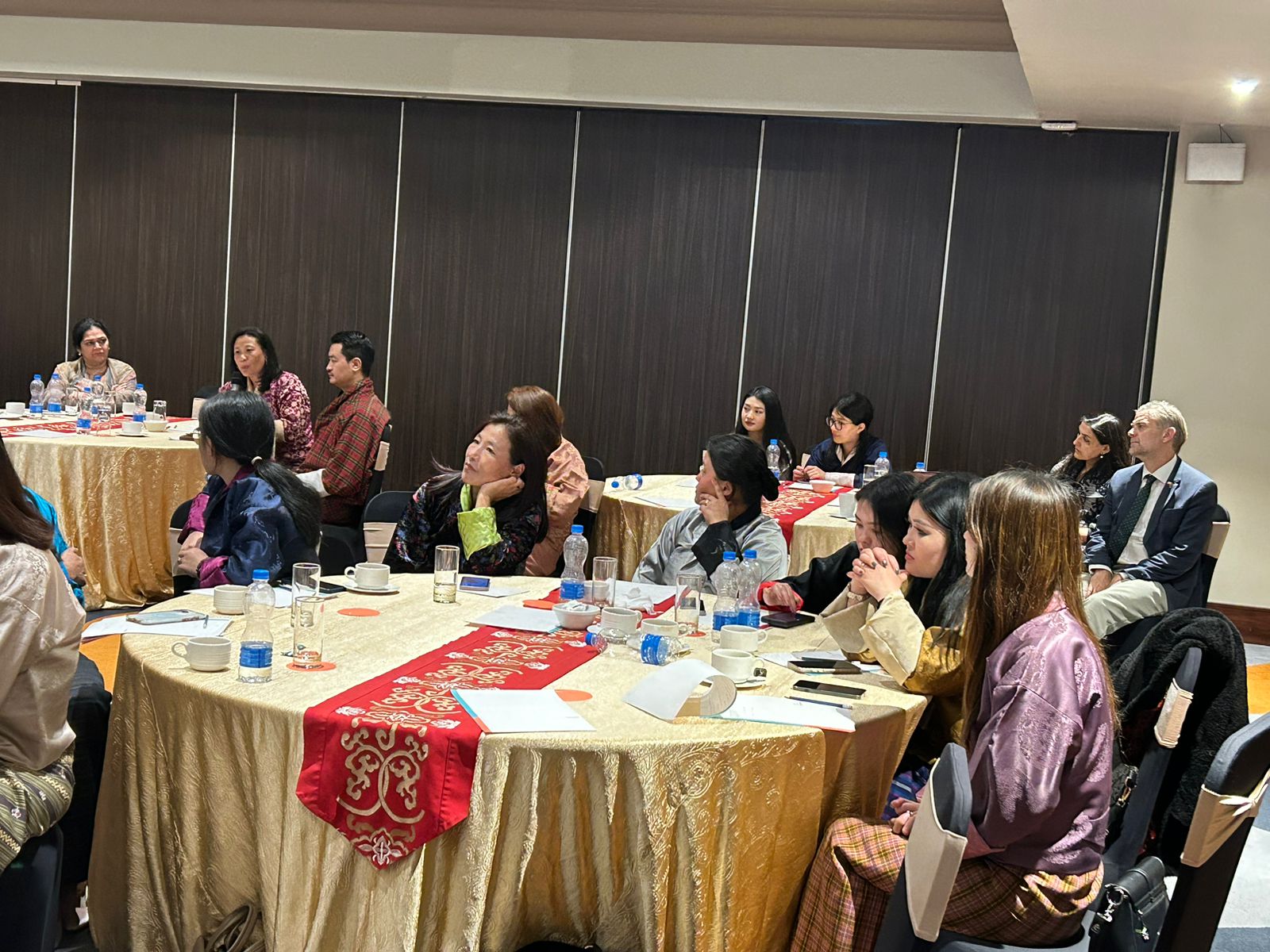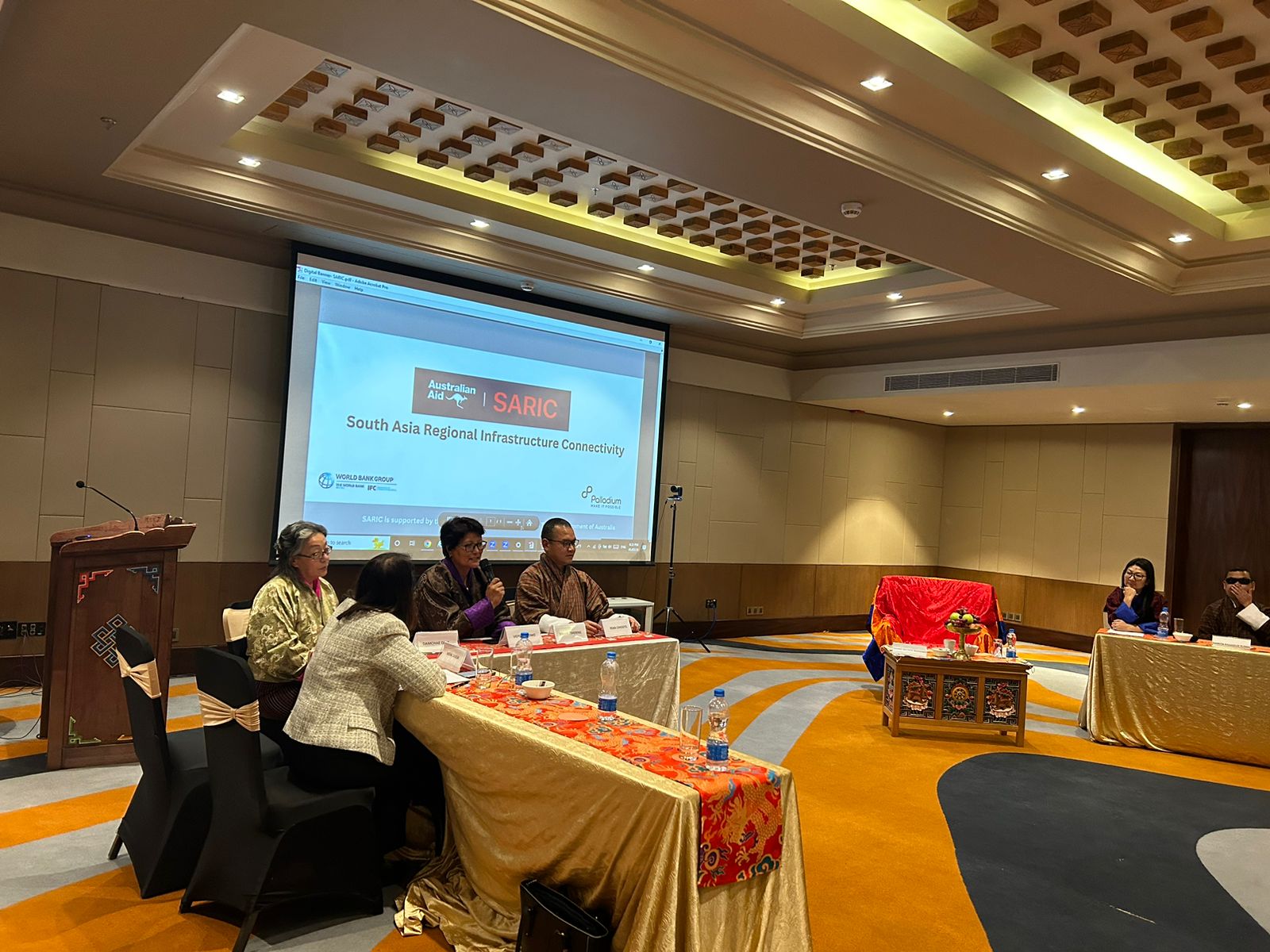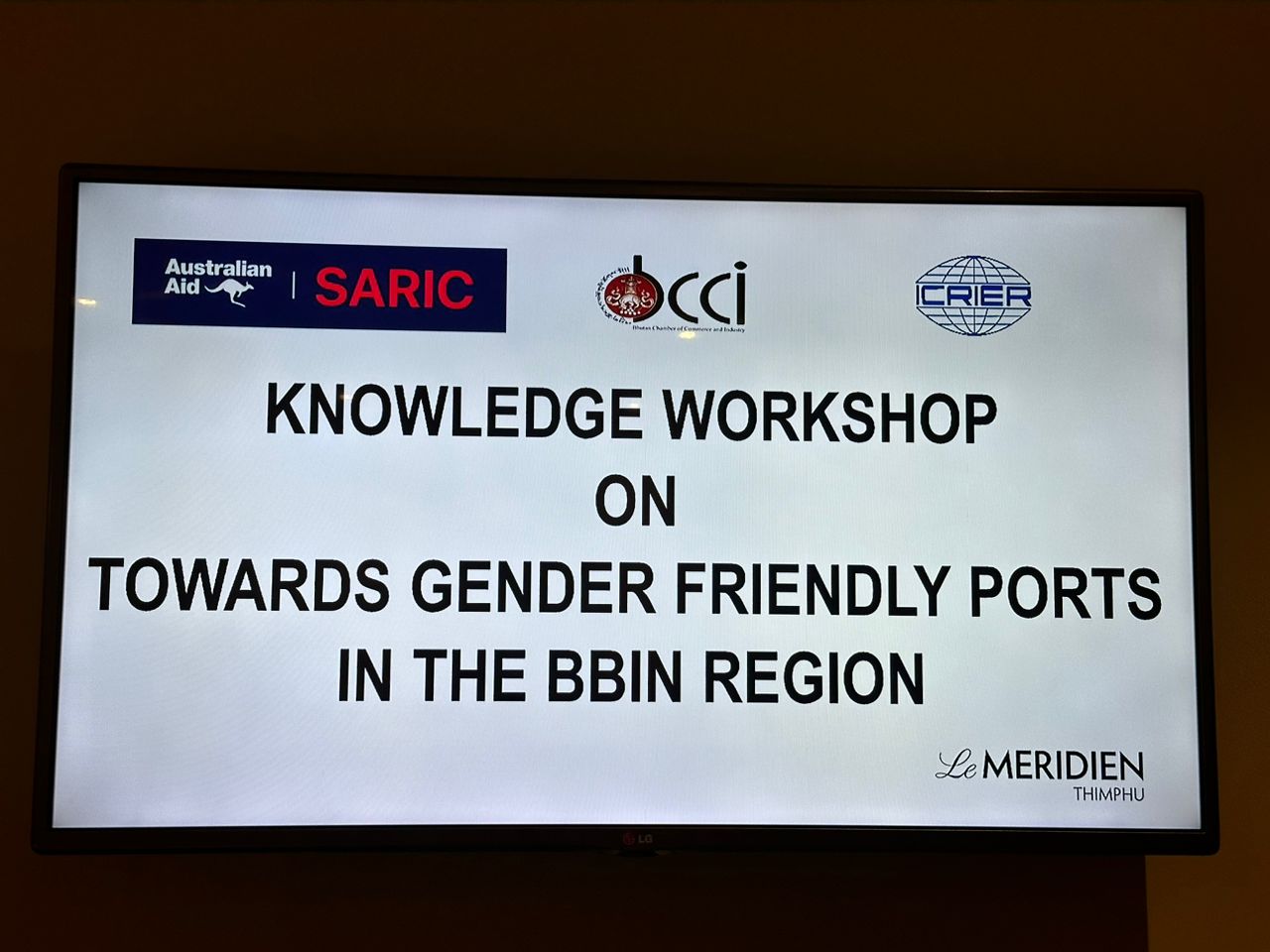The objective of the workshop was to engage with policy makers, private sector stakeholders and representatives of international development assistance agencies on the constraints experienced by women entrepreneurs in Bhutan to participate in international trade; facilitate discussion on the impediments faced by women at the land ports; sensitize policy makers on the need and usefulness of applying a gender lens to infrastructure development at the land ports; explore opportunities for regional cooperation and sharing of perspectives on the contours of a common template that can serve as a guide for an inclusive and common regional approach towards gender mainstreaming at the land ports among the BBIN countries.
The opening remarks by Dr Steven Barraclough, Department of Foreign Affairs and Trade (DFAT), Government of Australia, emphasized on the relevance of SARIC as a program in building connectivity and inclusivity and reinforced that inclusive development would not be possible without the participation of those impacted by it. Other keynote addresses were delivered by the World Bank, Land Ports Authority of India (LPAI), Ms. Dasho Dechen Wangmo, Head PEMA & former Minister for Health, Royal Government of Bhutan, and the Bhutan Chamber of Commerce & Industry (BCCI).


